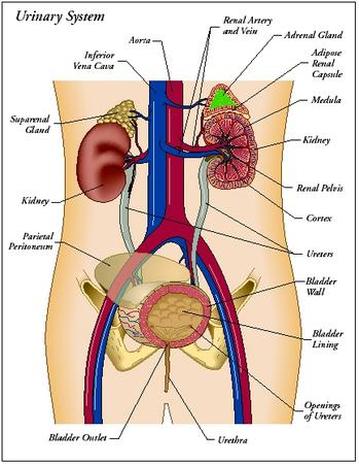The Excretory System

The excretory has one main function: to maintain homeostasis, which is the condition of the internal environment. The excretory system must be able to perform 3 main function to maintain homeostasis: it must be able to get rid of wastes, balance the salt and water levels, and it must keep the concentration of other substances in body fluids at regular levels. Excretion is when a living organism gets rid of waste from the body. When proteins are metabolized, nitrogen-containing wastes, like ammonia, urea, and uric acid, are produced. These produced wastes are poisonous to the body, so they must be removed. Other wastes, such as carbon dioxide and water, must also be removed.
Metabolism
Metabolism is the system of all chemical reactions in the body. Catabolism and anabolism are the two types of metabolism. Catabolism is breaking down large molecules to create energy. The energy that is released heats the body, allows muscles and nerves to function, and powers anabolism. Anabolism helps growth and repairs or replaces old, worn-out tissue by building large molecules from smaller molecules.
